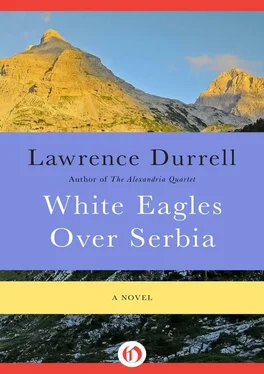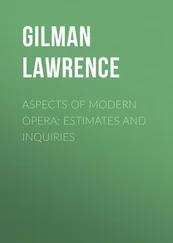That night Carter was surprised and somewhat touched to find him kneeling by his bed in prayer, dressed in his coarse, faded woollen pyjamas with the brown stripe. “I just came in to see that you were all right,” he said apologetically. “Yes,” said Methuen. “I was just saying my prayers. Always have done it since I was a child. I never sleep well if I don’t.”
“Prayers!” said Carter to himself, getting into bed and switching off the light. “Well, he’ll need some prayers where he’s going.”
CHAPTER SEVEN. The Picture Gallery
The morning dawned fine, and Mr. Judson permitted himself the luxury of an early morning bathe in the river before breakfast, driving out in Carter’s car to a point beyond the town. Carter himself lay in bed making incoherent noises and refused to share in this exploit, and it must be admitted that he showed little shame when Judson reappeared at the breakfast-table to crack his egg with an air of triumphant virtue. “I’m not as badly out of condition as I thought,” he told his host. “I swam about a mile on a very tough current.” Carter shook his head: “After forty, my dear chap,” he said, “one must play safe. Or one springs a sprocket. Early rising is for the young.”
“When were you forty?” asked Mr. Judson.
“Two years from now,” said Carter.
They drove to the Embassy in great good humour and once more Mr. Judson locked himself in with the account books — which he handled for all the world as if they were rare, and slightly disgusting palimpsests. Somehow the thought of meeting Vida had displaced his preoccupation with the Serbian folksongs; she might offer him the clue to them and save him further cogitation. He whistled softly to himself as he copied out those which had been repeated. Even the Ambassador, it seemed, was in a good humour. There was a little note on his desk which he opened with some surprise, marvelling at the fine lacework of the handwriting on the envelope: “My dear Colonel,” he read, “nothing would have pleased me better than to have you to a meal despite the view I take of your mission here. Nevertheless since you are masquerading as a clerk I feel it would be bad policy to draw you into the limelight by inviting you to my table. I trust you will not mistake discretion for churlishness.”
“Very decent of him,” said Methuen, “considering.”
He showed the letter to Porson who chuckled and said: “Maybe he has discovered that you fish.”
“By the way: this rendezvous—”
“Yes?”
“Can I borrow your raincoat and beret?”
Porson put on a long-suffering air and said: “Take them, dear old spy-catcher. They are in the hall.”
“And will you drop me off in some odd corner of the town so that I am not followed?”
“On one condition.”
“What?”
“That if she is beautiful you introduce me.”
“Ah,” said Methuen. “She is; I wish I could.”
“I’ve always wanted a beautiful spy.”
The fat and snouty figure of Marriot appeared in the Chancery doorway. “Ah,” he said with ineffable condescension. “Ah, Methuen, everything all right I hope?”
“Yes,” said Methuen gravely.
“I’m glad. Of course you must feel a bit out of it with H.E.’s uncompromising attitude to your work, but you know how it is in diplomacy.” He smiled as amiably as he could and rubbed his hands. “We have to be extra careful, extra careful.”
The change in his attitude was rather marked and Methuen turned to Porson when the door closed and said: “There seems to be a slightly different attitude to-day. The natives are less hostile.”
“They are getting used to you. Just wait until you muck things up and are brought back on a slab.”
“God forbid,” said Methuen not without a touch of superstition.
“Come along,” said Porson. “Time to be moving.”
They climbed into his battered old racing-car which he drove with great skill and raced away across the town. Despite the fact that they did not seem to be followed, Porson took no chances and for twenty minutes they doubled about the town, crossing and re-crossing their tracks until in a wilderness of alleys in the area above the Sava Bridge Methuen asked to be put down. He had by this time put on Porson’s mackintosh and beret.
He turned down a street and crossed to the Knez Mihaelova, pausing from time to time to gaze into a shop window. The park, by comparison with the mean streets and bare shop windows, looked singularly inviting and he crossed the asphalt paths towards the little picture-gallery with a light and springy step. Here and there, to be sure, he spotted a blue-clad militia man and not infrequently a “leather man” (as Porson called the secret policemen), but he was sure that their attention was not focused on him, and he only hoped that Vida had managed to arrived at the rendezvous without difficulty. He bought a ticket to the exhibition which commemorated the Partisan War and entered the gallery with the crowd. His heart gave a little leap for he saw her directly, standing in the far corner of the gallery examining a painting. He opened his catalogue and worked his way slowly towards her, gravely examining each picture in turn with a judicial eye. It was not long before they found themselves standing together before a particularly flamboyant representation of the fourth offensive and Vida whispered: “Go up to the tower of the fort. I will follow.”
With the same unhurried air of concentration he did as he was told, working his way out of the gallery and turning to the left, across the expanse of gravel to the steps which led up into the old tower. The path led them across a sort of ravelin and through a gate towards the central bastion, and here he climbed the stairs slowly, pausing from time to time to take in the magnificent view which changed from room to room. A few couples sauntered in the sun on the terrace, and some children played about in one of the courtyards, but for the most part the fort seemed more or less deserted. He tucked himself in a corner of the battlements and stared out at the confluence of the two rivers which swirled away round the foot of the Kalemigdan. The Danube and the Sava met in a single jointless ripple beyond the Sava Bridge and swept down, turbid and brown, towards the eastern flank of the city.
Here Vida joined him in a little while and putting her arm round his shoulders stood beside him as he gazed out over the soft purple plain which stretched away towards Hungary. “Is is not lovely?” she said. Anyone who saw them might imagine they were husband and wife, pausing for a rest and for the first time he saw a smile of unshadowed content on her face. The old Vida was coming alive.
“Why are you working for them?” said Methuen at last when the first of her few questions had been asked and answered. “Ah,” she said, “the only choice left was to become the mistress of someone. My ration card was taken away because I refused. One has to eat. But luckily, luckily … I found I could be of use.” She lowered her voice to a whisper again and said: “They are afraid of us, Methuen. They know we are getting strong. They know that everyone is on our side and that the country would rise to-morrow if it could hear the voice of a leader.”
“Tell me about the broadcasts,” said Methuen, drawing a bow at a venture, and was delighted to see the look of surprised recognition in her eyes. “Ah! you know about those,” she said.
“A certain amount. Sophia Marie must be a White Eagle too.”
“How do you find out things that even the OZNA does not know?”
“How is the message passed?”
“Some are repeated.”
“I know.”
“The message starts at the tenth line.”
Читать дальше












